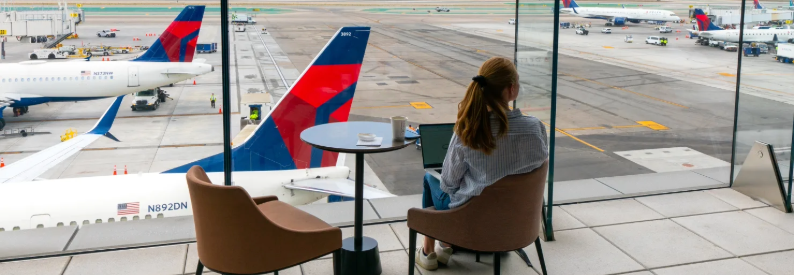Airlines Bet on Premium Leisure as Demand Falters

As U.S. economic uncertainty grows and domestic coach bookings soften, major carriers are pivoting toward premium leisure travelers willing to pay more for spacious seats and exclusive amenities. Delta Air Lines and Frontier Airlines recently withdrew their 2025 forecasts, citing a murky economic outlook and sluggish near‑term demand, including a drop in corporate travel and fewer visitors from Canada. With consumers hesitating on discretionary spending, airlines are leaning on affluent vacationers to sustain revenue.
Consumer sentiment has slipped in recent months, according to the University of Michigan, while Bank of America reports that spending on “nice to have” services like dining and tourism dipped in February and March. Delta CEO Ed Bastian warned that the industry is “acting as if we’re going into a recession” after initially predicting 2025 would be the airline’s best year ever. To counterbalance domestic softness, carriers are doubling down on higher‑yield cabins.
Spirit Airlines embraced the trend with a tongue‑in‑cheek ad featuring Parker Posey’s “White Lotus” catchphrase, spotlighting its Big Front Seat and appealing to travelers who “aren’t meant to live an uncomfortable life.” Airlines have been racing to remodel cabins with more premium seating, from lie‑flat business class to premium economy, and expanding plush airport lounges. Air France and Lufthansa recently unveiled first‑class suites with doors, while regulators work to certify hundreds of intricate cabin components.
Delta and Frontier are also scaling back growth plans by trimming capacity on off‑peak routes—especially midweek domestic flights—where softer demand has led to empty seats. By contrast, executives report that international and premium segments remain resilient. Delta President Glen Hauenstein said that while main‑cabin demand is weak, “we do continue to see greater resilience in international and our diversified revenue streams, including premium and loyalty.”
Hauenstein noted that premium‑segment revenue on long‑haul international routes has already outpaced main‑cabin yields, and he expects the gap to widen in the coming quarter. United Airlines, Delta’s closest rival, has similarly invested in high‑end cabin refurbishments, lounge expansions and new long‑haul markets aimed at wealthy globetrotters. The carrier will provide further insights when it reports quarterly results this week, followed by American and Southwest in the coming weeks.
Despite hopes for affluent travelers, international markets are not immune to weakness. U.S. carriers are reducing some Canada‑U.S. services amid falling demand, contributing to a widening $50 billion U.S. international travel deficit. Non‑U.S. citizen arrivals in March totaled 4.5 million—nearly 13 percent below 2019 levels and down 10 percent year‑over‑year, according to the Commerce Department.
Yet these headwinds are generating opportunity for deal‑hunters. Airlines have rolled out fare sales deep into late spring, and discounted transatlantic tickets are drawing renewed interest. “This is probably the best summer for Europe travel I’ve seen in years,” said Scott Keyes of travel deal site Going, formerly known as Scott’s Cheap Flights. Lower oil prices, currency fluctuations and excess capacity are aligning to deliver bargains.
As airlines navigate choppy economic waters, their focus on premium leisure travelers and strategic network adjustments will be critical to maintaining profitability. By offering a range of cabin options and competitive pricing on international routes, carriers aim to capture travel dollars even as budget‑conscious consumers pause. In this evolving market, those willing to splurge on comfort and convenience may find the best seats—and the best deals—on board.
Related News : https://suspicious-zhukovsky.67-21-117-18.plesk.page/category/air-travel-business/airline-finance/
Sources : AirGuide Business airguide.info, bing.com, cnbc.com
